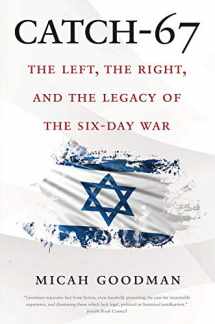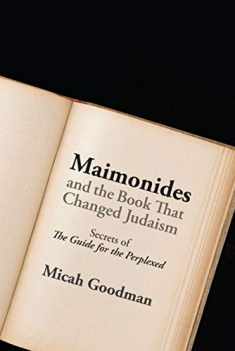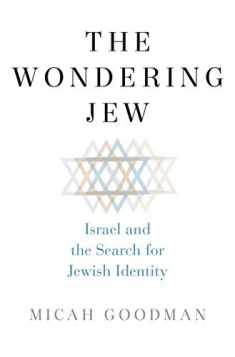
Catch-67: The Left, the Right, and the Legacy of the Six-Day War
ISBN-13:
9780300248418
ISBN-10:
0300248415
Edition:
Reprint
Author:
Micah Goodman
Publication date:
2019
Publisher:
Yale University Press
Format:
Paperback
264 pages
Category:
Israel & Palestine
,
Middle East History
,
World History
FREE US shipping
Book details
ISBN-13:
9780300248418
ISBN-10:
0300248415
Edition:
Reprint
Author:
Micah Goodman
Publication date:
2019
Publisher:
Yale University Press
Format:
Paperback
264 pages
Category:
Israel & Palestine
,
Middle East History
,
World History
Summary
Catch-67: The Left, the Right, and the Legacy of the Six-Day War (ISBN-13: 9780300248418 and ISBN-10: 0300248415), written by authors
Micah Goodman, was published by Yale University Press in 2019.
With an overall rating of 4.1 stars, it's a notable title among other
Israel & Palestine
(Middle East History, World History) books. You can easily purchase or rent Catch-67: The Left, the Right, and the Legacy of the Six-Day War (Paperback) from BooksRun,
along with many other new and used
Israel & Palestine
books
and textbooks.
And, if you're looking to sell your copy, our current buyback offer is $4.2.
Description
A controversial examination of the internal Israeli debate over the Israeli-Palestinian conflict from a best-selling Israeli author
Since the Six-Day War, Israelis have been entrenched in a national debate over whether to keep the land they conquered or to return some, if not all, of the territories to Palestinians. In 2017, best-selling Israeli author Micah Goodman published a balanced and insightful analysis of the situation that quickly became one of Israel’s most debated books of the year. Now available in English translation with a new preface by the author, Catch-67 deftly sheds light on the ideas that have shaped Israelis’ thinking on both sides of the debate, and among secular and religious Jews about the Israeli‑Palestinian conflict.
Contrary to opinions that dominate the discussion, he shows that the paradox of Israeli political discourse is that both sides are right in what they affirm—and wrong in what they deny. Although he concludes that the conflict cannot be solved, Goodman is far from a pessimist and explores how instead it can be reduced in scope and danger through limited, practical steps. Through philosophical critique and political analysis, Goodman builds a creative, compelling case for pragmatism in a dispute where a comprehensive solution seems impossible.
Since the Six-Day War, Israelis have been entrenched in a national debate over whether to keep the land they conquered or to return some, if not all, of the territories to Palestinians. In 2017, best-selling Israeli author Micah Goodman published a balanced and insightful analysis of the situation that quickly became one of Israel’s most debated books of the year. Now available in English translation with a new preface by the author, Catch-67 deftly sheds light on the ideas that have shaped Israelis’ thinking on both sides of the debate, and among secular and religious Jews about the Israeli‑Palestinian conflict.
Contrary to opinions that dominate the discussion, he shows that the paradox of Israeli political discourse is that both sides are right in what they affirm—and wrong in what they deny. Although he concludes that the conflict cannot be solved, Goodman is far from a pessimist and explores how instead it can be reduced in scope and danger through limited, practical steps. Through philosophical critique and political analysis, Goodman builds a creative, compelling case for pragmatism in a dispute where a comprehensive solution seems impossible.


We would LOVE it if you could help us and other readers by reviewing the book
Book review

Congratulations! We have received your book review.
{user}
{createdAt}
by {truncated_author}




